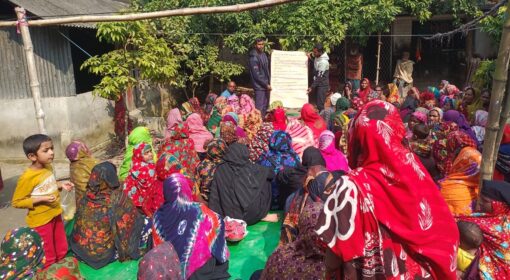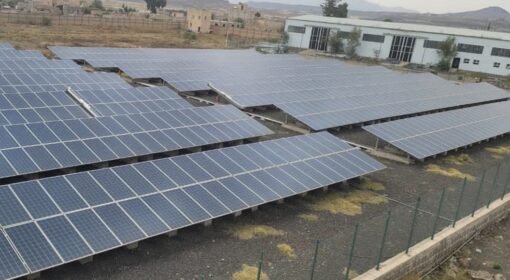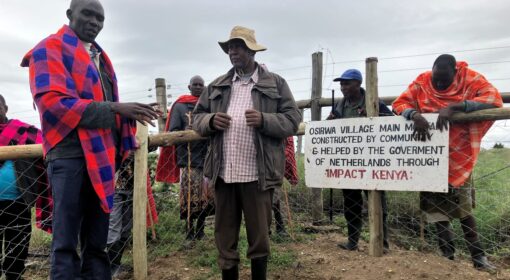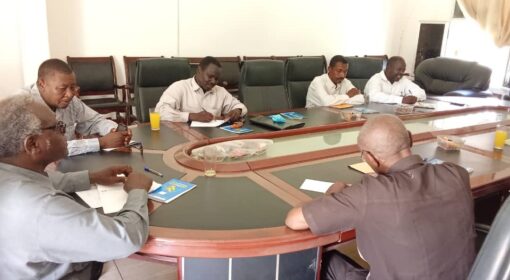By Femke van Woesik, Rwnag Mohammed, Mst Jannatul Naim, Aida Zare
This blog is part of a dossier on locally-led adaptation, featuring insights and lessons from the Reversing the Flow (RtF) program. RtF empowers communities in Bangladesh, Burkina Faso, Ethiopia, Kenya, and Sudan to build climate resilience through direct funding and a community-driven, landscape approach.
“You’ve been gone for a while… What’s the issue? Let’s sit together and write a concept note!”
This was said to a development worker during a project visit in Sudan. What made this moment interesting was that the man speaking could neither read nor write, yet he had come to see the term “concept note” as the first step to action. It’s an illustration of how deeply development sector terms have been internalized, sometimes more than we realize.
Over the years, development work has brought real progress to many communities: access to clean water, education, new livelihoods. But there’s also something subtler that often comes with it: a way of thinking shaped by the structures and expectations of the NGOs and organizations that do this development work.
In many places, people have learned to ask for what they think we want to hear (“training,” “capacity building,” “sensitization”) not because they always need it, but because the NGO model has conditioned the script. We need to open up space for people to speak differently. To name their strengths. To think beyond the limits of project logic.
Communities have become used to operating within a fixed frame: project cycles, donor requirements, and external expertise. They begin to see their own development through the same lens. Dreams shrink to what is fundable. Solutions become shaped by what they think outsiders want to hear. When asked what they need, the default answer is often ‘training’, not always because it is needed, but because that’s what the system has taught them to value.
This is not just about language. It’s about mindset. Over time, communities internalize the idea that they are not yet ready, not yet capable, not yet enough. That development is something done to them or for them. Not something they can drive themselves.
Yet many of these same communities have spent years engaging in development efforts. They’ve organized water committees, managed projects, responded to crises, and solved problems in ways no outside actor could. The knowledge, leadership, and creativity are already there. It just doesn’t always look like “capacity” in the outsider sense of the word and as a result capacity needs to be ‘built’ through workshops and trainings.
The challenge, then, is not to build capacity from scratch. It’s to help communities recognize and build upon what they already have. That means moving away from the automatic training reflex and making space for peer-to-peer learning, storytelling, and local reflection first. Before planning another workshop, start with: What do you already know? What have you already done? Who can you learn from nearby? In Bangladesh, we met a woman guiding a local discussion who holds a master’s degree but lacks the means to act on it. Another young woman in Bara, Sudan said: “Many of us are university graduates. We have ideas, ambitions, we don’t want to stay at home”. Skills are often not the gap. They simply lack opportunity, not competence.
At the same time, it’s important to recognize that this isn’t always a one-sided story. Training requests often reflect genuine needs and personal aspirations. In climate-vulnerable areas, training in livelihoods, disaster preparedness, and flood emergency response has not only built capacity but saved lives. These are not externally imposed activities, but community-driven responses shaped by lived experience, resilience, and a drive to adapt. As someone from a community in Bangladesh said: “Knowledge can never die, it always supports life.” Training, in these cases, is a proactive and informed choice. It reflects a community’s own sense of need, curiosity, and commitment to progress. Also, there is always knowledge to acquire, skills to sharpen, and challenges to respond to.
In contexts where communities face severe vulnerabilities, any well-meant initiative from an NGO will likely be accepted. But as one community member pointed out during the NGO Tiipaalga baseline activities in Burkina Faso: the difference lies in whether communities are given the choice to prioritize. This distinction between need and priority is essential. In traditional development approaches, external actors often arrive with predefined activities. “We’re going to train 50 women in soap-making” for instance. Communities accept this because they do need training. But if given the space to prioritize themselves, they might point instead to access to clean water or nutrition. They are in a logic of: “We take what we are given, because we need everything”.
When the power to prioritize is absent, autonomy is lost.
This shows that the issue is not the existence of training or workshops per se. It’s the process by which needs are identified, prioritized, and addressed. Communities often do want training, but when asked what kind, they shape their answers to fit donor expectations. “Something is better than nothing,” even if it’s not what they would have requested first. Our task is to listen deeply and ask better questions. What is this request rooted in? How can it be shaped into something that builds on existing knowledge? And how can we co-create spaces where both traditional wisdom and new learning can strengthen one another?
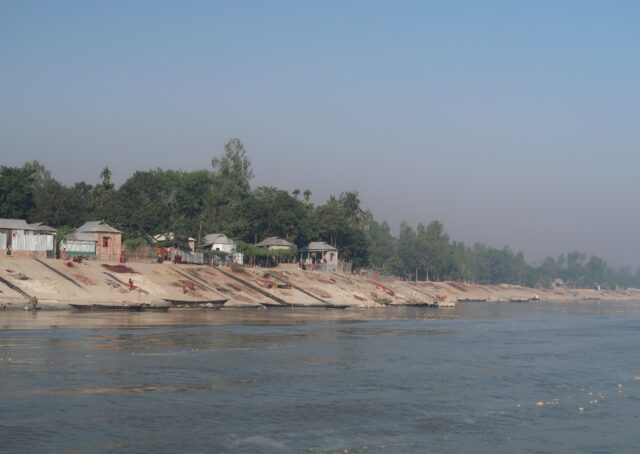
We also need to help expand what’s seen as possible. Too often, community aspirations remain stuck within the bounds of what they think an NGO might support. We need to help communities dream beyond the usual templates. That could mean introducing them to different financing options, linking them to local enterprise networks, or simply asking better questions: What would you do if there were no NGO involved? What are you already proud of?
There is no shortcut to this shift. It takes trust, patience, and humility. Especially from those of us in the sector. But it’s worth it. Because when communities move from being implementers of NGO projects to drivers of their own priorities, the results are deeper, more sustainable, and far more transformative.
To conclude: support still matters. But the best kind of support is the kind that eventually becomes unnecessary.
